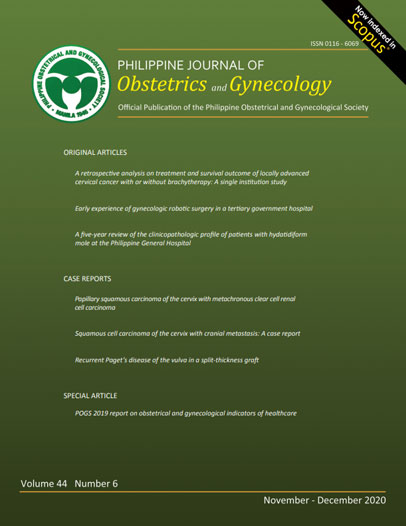Search for articles
Article Detail
Unexpected acute respiratory failure following administration of rocuronium bromide during cesarean delivery in a severely preeclamptic parturient treated with magnesium sulfate
Joseph Carl M. Macalintal, MD; Erlinda N. Armovit, MD, FPOGS
Department of Obstetrics and Gynecology, St. Luke’s Medical Center – Quezon City
A patient with severe preeclampsia was given magnesium sulfate intrapartum, wherein a primary cesarean section was indicated for arrest in cervical dilatation, and was performed under general anesthesia. The patient developed acute respiratory failure and the causes of this occurrence were investigated in this report. It was later found out that neither the hypermagnesemia nor the muscle relaxant alone caused the patient’s condition but the interaction between the two. The patient was managed expectantly at the intensive care unit (ICU) and was eventually extubated during the first post-operative day. Knowledge of this drug interaction would allow obstetricians to advise their patients and their family about the possibility of prolonged intubation and ICU admission. This would also bring to the anesthesiologists’ attention the need to decrease the dose of muscle relaxant and to prepare drugs for immediate decurarisation.
Current Issue
Search article

